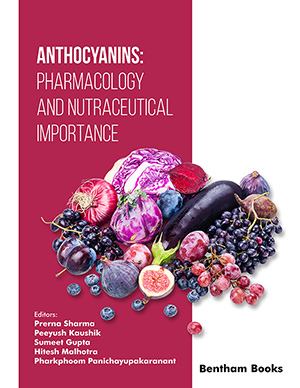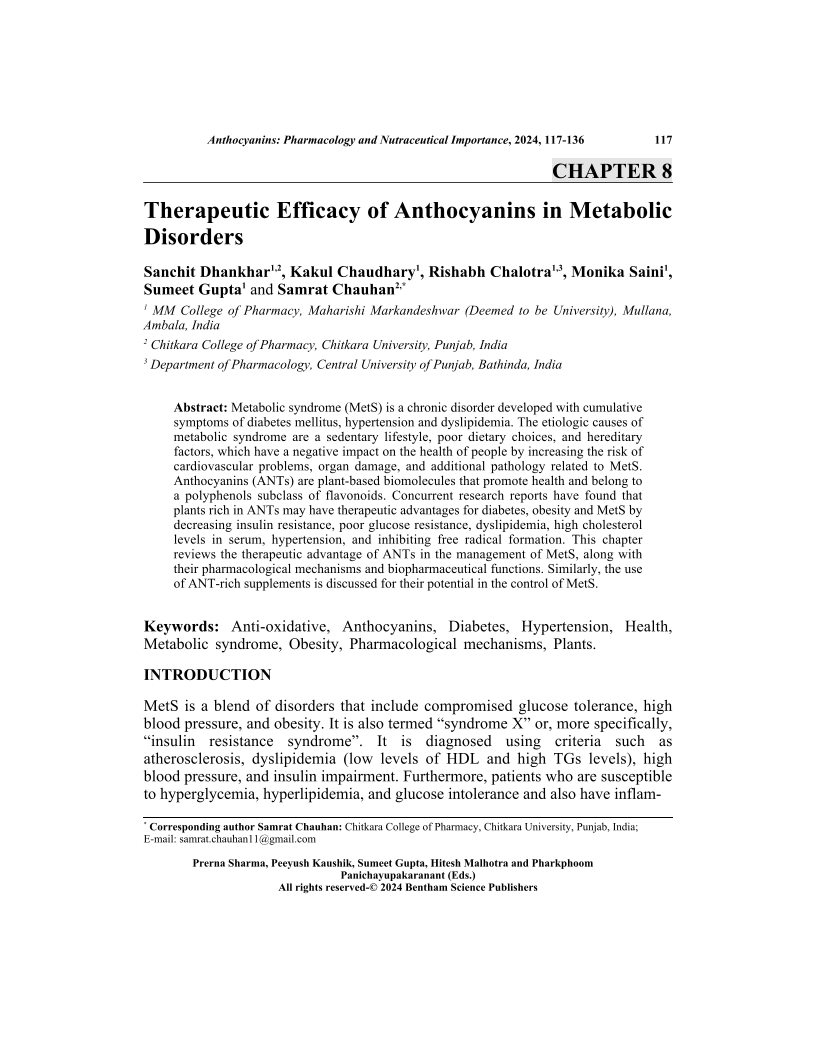Therapeutic Efficacy of Anthocyanins in Metabolic Disorders

- Authors: Sanchit Dhankhar1, Kakul Chaudhary2, Rishabh Chalotra3, Monika Saini4, Sumeet Gupta5, Samrat Chauhan6
-
View Affiliations Hide Affiliations1 MM College of Pharmacy, Maharishi Markandeshwar (Deemed to be University), Mullana, Ambala, India 2 MM College of Pharmacy, Maharishi Markandeshwar (Deemed to be University), Mullana, Ambala, India 3 MM College of Pharmacy, Maharishi Markandeshwar (Deemed to be University), Mullana, Ambala, India 4 MM College of Pharmacy, Maharishi Markandeshwar (Deemed to be University), Mullana, Ambala, India 5 MM College of Pharmacy, Maharishi Markandeshwar (Deemed to be University), Mullana, Ambala, India 6 Chitkara College of Pharmacy, Chitkara University, Punjab, India
- Source: Anthocyanins: Pharmacology and Nutraceutical Importance , pp 117-136
- Publication Date: November 2024
- Language: English
Therapeutic Efficacy of Anthocyanins in Metabolic Disorders, Page 1 of 1
< Previous page | Next page > /docserver/preview/fulltext/9789815223880/chapter-8-1.gif
Metabolic syndrome (MetS) is a chronic disorder developed with cumulative symptoms of diabetes mellitus, hypertension and dyslipidemia. The etiologic causes of metabolic syndrome are a sedentary lifestyle, poor dietary choices, and hereditary factors, which have a negative impact on the health of people by increasing the risk of cardiovascular problems, organ damage, and additional pathology related to MetS. Anthocyanins (ANTs) are plant-based biomolecules that promote health and belong to a polyphenols subclass of flavonoids. Concurrent research reports have found that plants rich in ANTs may have therapeutic advantages for diabetes, obesity and MetS by decreasing insulin resistance, poor glucose resistance, dyslipidemia, high cholesterol levels in serum, hypertension, and inhibiting free radical formation. This chapter reviews the therapeutic advantage of ANTs in the management of MetS, along with their pharmacological mechanisms and biopharmaceutical functions. Similarly, the use of ANT-rich supplements is discussed for their potential in the control of MetS.
-
From This Site
/content/books/9789815223880.chapter-8dcterms_subject,pub_keyword-contentType:Journal -contentType:Figure -contentType:Table -contentType:SupplementaryData105

